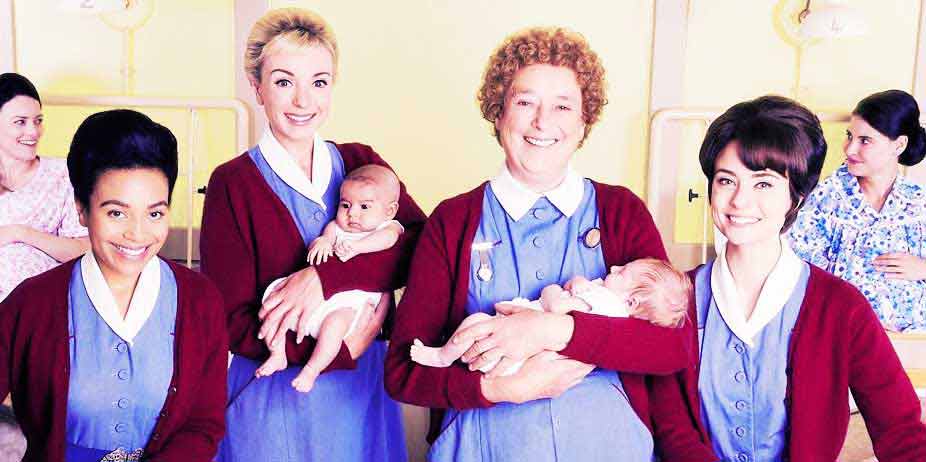
Call the Midwife, Season 7 (2018)
For seven years, the BBC has caused an outbreak of tissue shortages on Sunday nights, but no previous season has hit its audience quite as hard as one cast member departs in a coffin. Amid the tears are the usual laughs, touching scenes, and strong female friendships that has made the show a success from its conception.
Christmas has hit Poplar hard and with it, sub-zero temperatures that freeze milk in bottles, delay ambulances, and leave the midwives scrambling to reach contraction-riddled mothers. When Dr. Turner (Stephen McGann) finds one of his recent patients frozen in a snow bank, Sister Julienne (Jenny Agutter) visits a housebound woman to break the news and uncovers a devastating secret that shakes her to the core. The industrious Nurse Crane (Linda Bassett) has a run-in with a local constable who likes things 'just so,' while Barbara (Charlotte Richie) and Tom (Jack Ashton) contemplate a short stint of religious outreach elsewhere.
Trixie (Helen George) battles her own demons with insecurities about her relationship with a local dentist, and the temptation to return to her alcoholism. Sister Winifred (Victoria Yeates) tries to learn to drive, with mixed success... and newcomer Lucille (Leonie Elliott) stumbles her way through the snow to reach the house, but finds some of Poplar's residents less than eager to accept the help of a Jamaican nurse. Through frozen pipes and recovered televisions, with endless adventures with Fred and family, to Sister Monica Joan (Judy Parfitt) and her terror over an approaching eye operation, the series makes its audience laugh, scowl, and cry as it explores the events of the early 1960s. The usual barrage of touching stories combines with the antics of each character to create a memorable seventh season, but not one without its heartache. Several characters face personal loss and turmoil, but the writer balances it well with Lucille as a fresh-faced, faith-driven nurse who does not let local racism stop her from serving the public.
If the series does one thing well, it is to make the audience think without ever being pretentious or preachy; its messages of tolerance, forgiveness, love, acceptance, and family contrast with the sometimes harsh or strident views of the period, but as time moves forward, so do the nuns and midwives we have come to know so well. Nurse Valarie (Jennifer Kirby) is one of the standouts in terms of likability and characterization, and her sparkling smile and beehive hairdo carries us through the good and bad in Poplar, from her first heartache in delivering a child (and a Christmas miracle, to boot) to the finale, where she says you just have to keep on smiling. If the series has one flaw, it's that it's a little too true to life sometimes... and that means, not all its characters have a happy ending. In a world where a writer has all the power, the choice to kill off a beloved member of Nonnotus seems cruel, but it also asks us to remember that life is precious. So, I forgive Heidi Thomas this time. Maybe.
Sexual Content:
Reference to sexual abuse and an incest pregnancy;
out-of-wedlock mothers; a young mother comes to grips
with her father's same-sex relationship in the finale
(two men hold hands and speak romantically to one
another).
Language:
Almost none, occasional gruffness.
Violence:
Lots of birthing scenes with broken water, blood, etc.
Discussion about an abusive husband.
Other:
A woman tries to self-inflict an abortion and has a
miscarriage.
